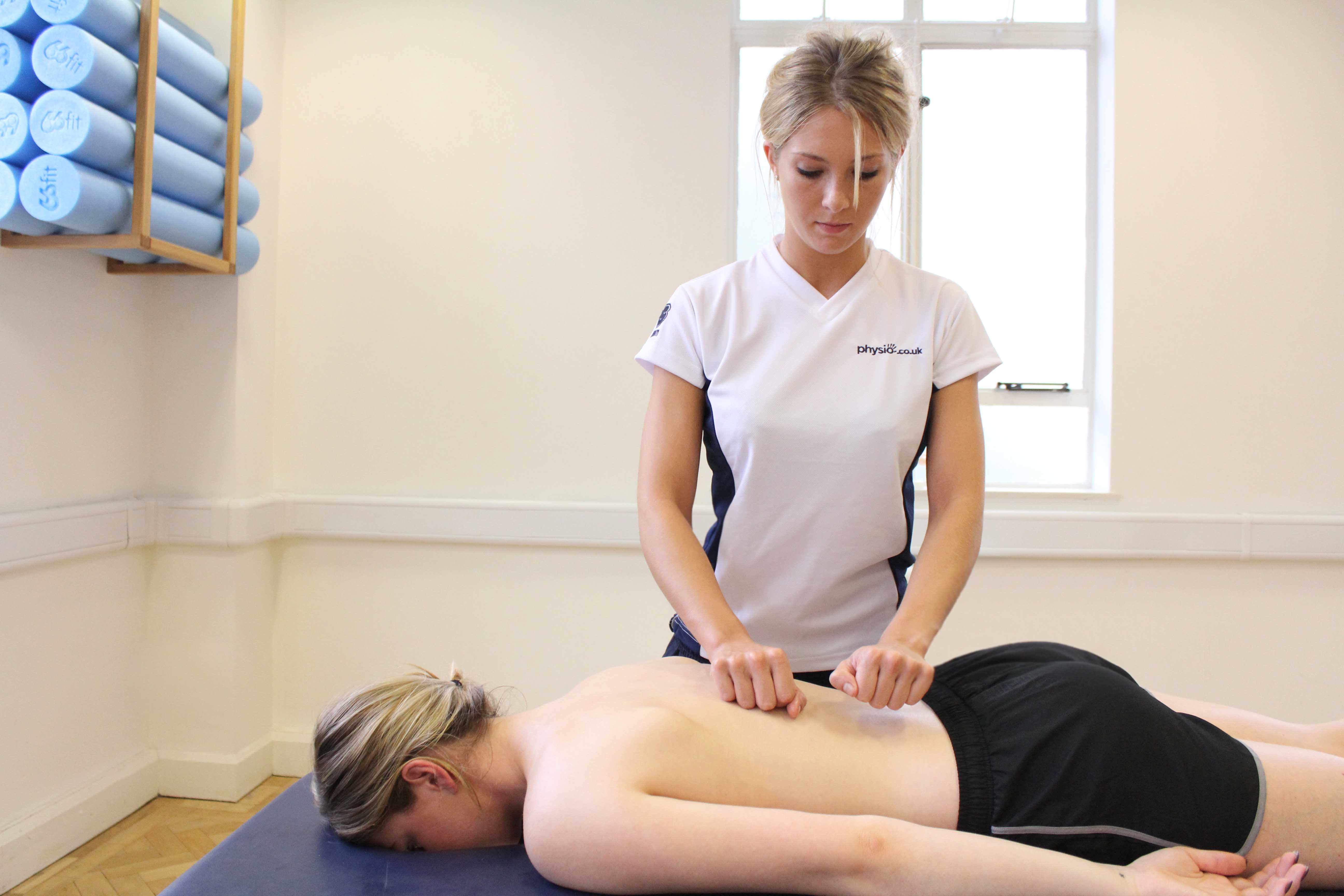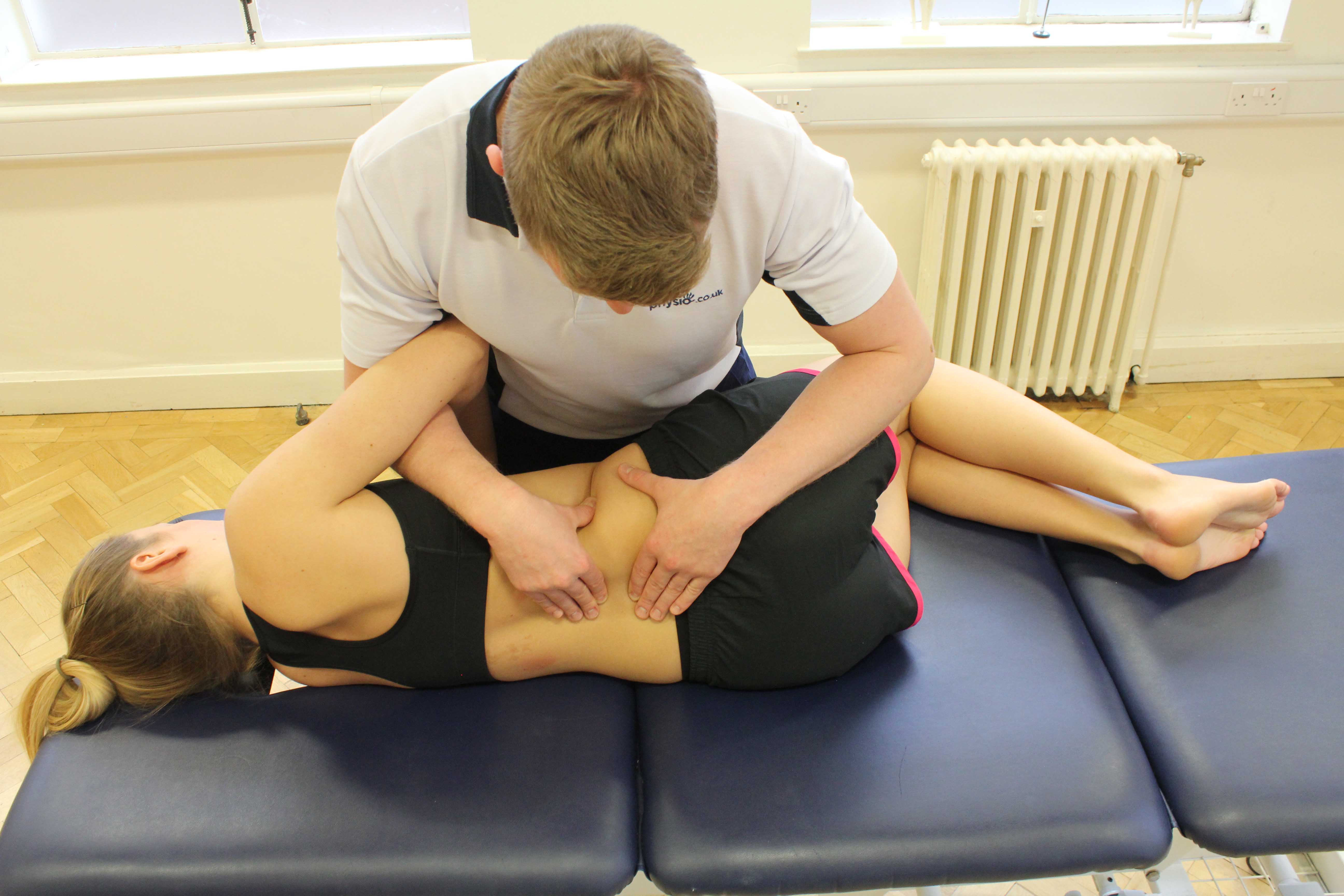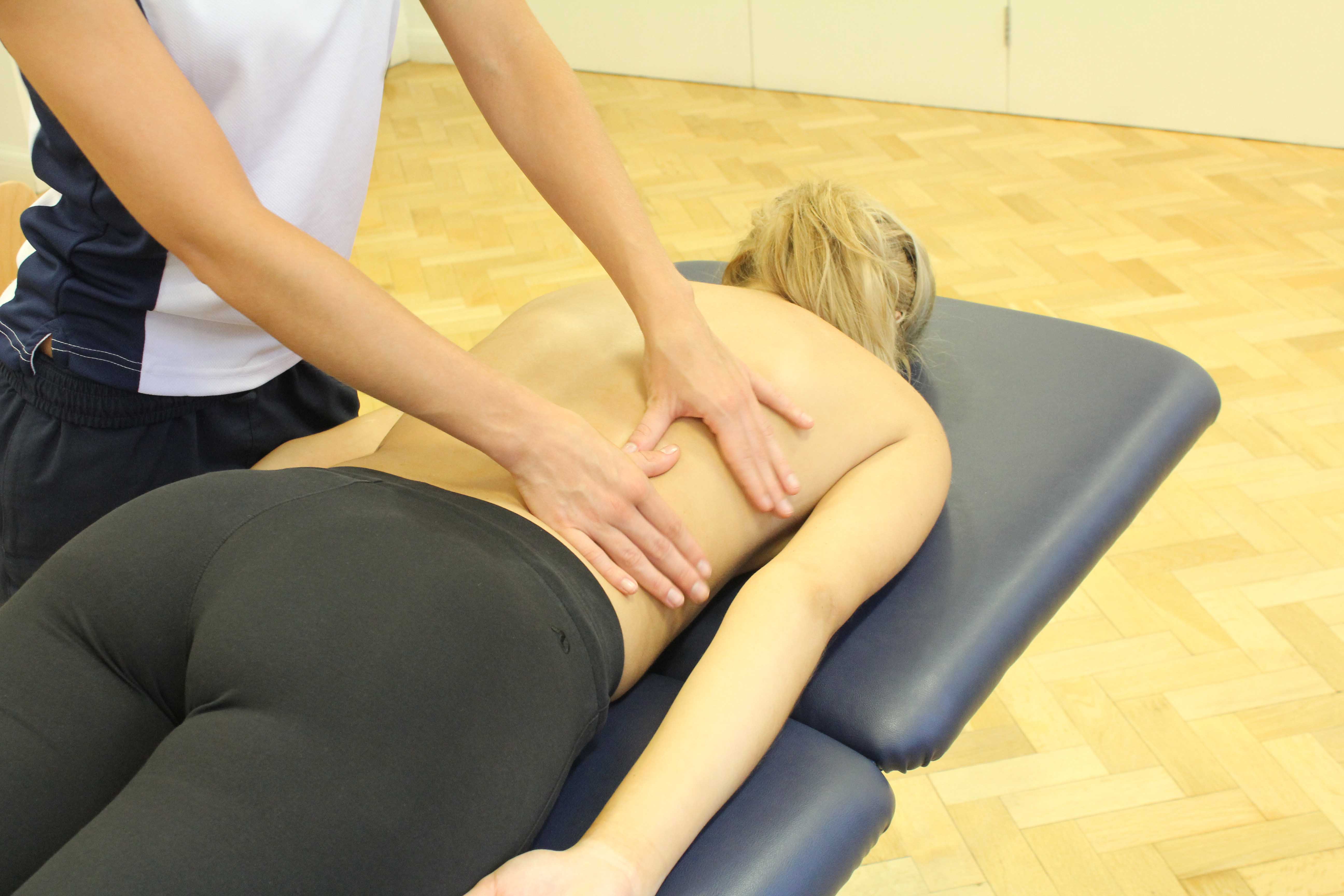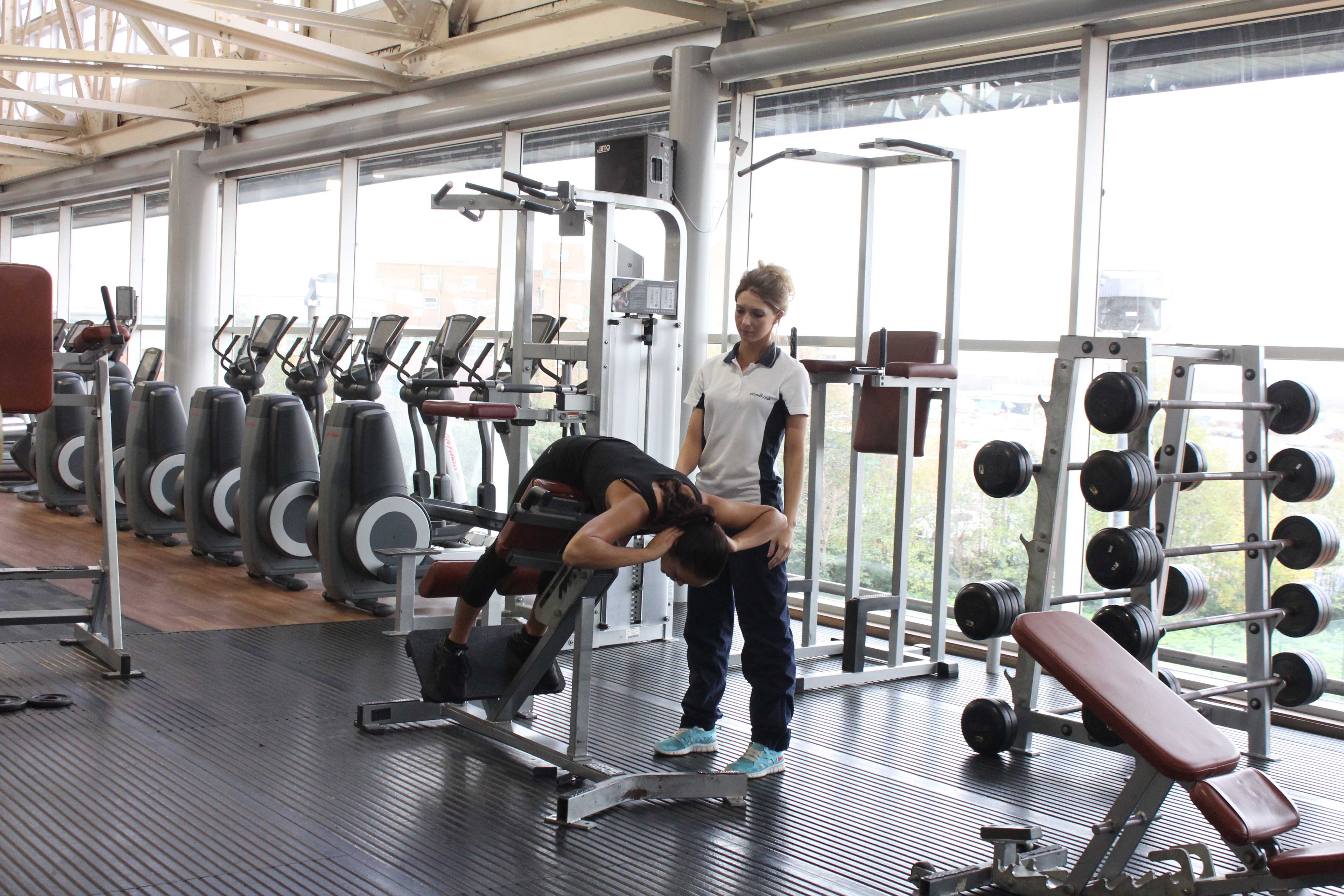What is lower back facet joint pain?
The spine consists of 33 vertebrae which are separated by discs that act as shock absorbers and allow movements in the spine. Every vertebra also has two pairs of facet joints which further increases the movement at the spine. If the facet joints become damaged in the lower back area, this can result in lower back facet joint pain. Physiotherapy is an excellent treatment for lower back facet joint pain.
 Above: Beating percussion soft tissue massage applied by an experienced therapist
Above: Beating percussion soft tissue massage applied by an experienced therapistHow does lower back facet joint pain happen?
There are a number of causes of lower back facet joint pain. Wear and tear of the facet joints is the most common reason for facet joint pain. This is also known as spondylosis or osteoarthritis and is caused by ageing or secondary to an injury of the facet joint. Damage to the facet joints will cause extra bony growths (osteophytes) on the joint surface to try and repair the damage. The osteophytes can cause stiffness in the lumbar spine and sometimes impinge nearby nerves.
What are the symptoms of lower back facet joint pain?
Pain and stiffness are common symptoms of lower back facet joint pain. If nerves are irritated by the osteophytes, this can also result in neurological symptoms including pins and needles, numbness and weakness in the buttocks and legs. You may experience increased stiffness in the mornings and it could take a short while for this to reduce and for you to continue with your normal daily routine. Other symptoms include:
 Above: Mobilisations of the vertebrea in the lower back by experienced therapist
Above: Mobilisations of the vertebrea in the lower back by experienced therapistWhat should I do if I have lower back facet joint pain?
If you notice any of the symptoms of lower back facet joint pain, it is important that you visit your GP as soon as possible to confirm an accurate diagnosis. This may involve having an X-ray to determine the extent of the damage in the lumbar spine. If the symptoms are less serious, your GP may prescribe you with painkillers or anti inflammatory drugs to reduce the pain and any inflammation in the area. Once a diagnosis has been confirmed, you should begin a tailored physiotherapy programme as soon as possible to optimise your recovery.
Physiotherapy treatment for lower back facet joint pain
Physiotherapy treatment will include strengthening and stretching exercises to keep your lumbar spine as strong and flexible as possible. Massage and heat treatments may be used to reduce muscle spasm and pain in the area. Postural advice and exercises are an important part of physiotherapy treatment to reduce any extra strain placed on your lower back. Other important treatments include:
- Hydrotherapy
- Postural Realignment
- Ergonomic Assessment
- Soft Tissue Treatment
- Core Stability Exercises
 Above: Soft tissue massage of the lower back muscles and connective tissue by specialist therapist
Above: Soft tissue massage of the lower back muscles and connective tissue by specialist therapistWhat shouldn’t I do if I have lower back facet joint pain?
Try to avoid any positions that put unnecessary strain on the ligaments, joints and muscles of the lower back. This includes standing and sitting for long periods of time such as driving and typing. Heavy lifting and repetitive movements including twisting and bending should also be minimised as much as possible.
Could there be any long-term effects from lower back facet joint pain?
If you ignore the symptoms of lower back facet joint pain, the condition will get progressively worse and it will be more difficult to manage. It is likely that you will start to experience chronic (long term) pain which will increase the length of your recovery.
 Above: Progressive strengthening exercises for the lower back supervised by an experienced therapist
Above: Progressive strengthening exercises for the lower back supervised by an experienced therapistTo arrange a physiotherapy assessment call Physio.co.uk on 0330 088 7800 or book online.

 0330 088 7800
0330 088 7800

































